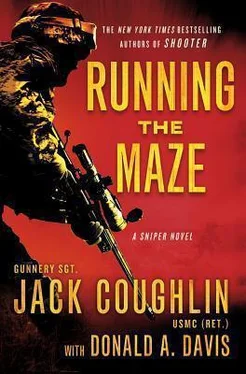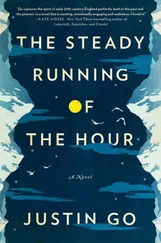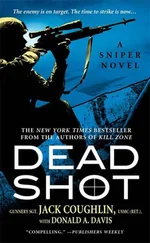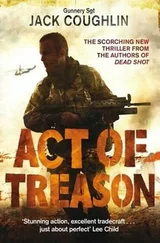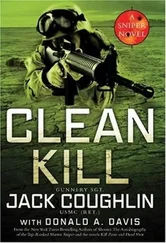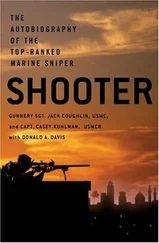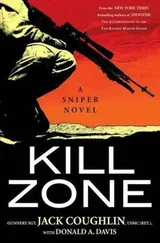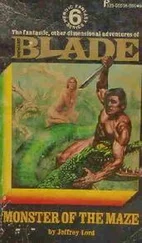Midway through one of the broader tunnels, down several levels from the surface, he slowed to a walk and leaned over, hands on knees, to catch his breath. The hallway was pale yellow and bore a bright red cross with the word INFIRMARY printed neatly in three languages, including English. He entered a large door that gave way to an airlock and then to a central chamber with several small side rooms. The smell changed to the antiseptic aroma of a functioning medical center, more like a hospital than an emergency field infirmary. Current medical needs were served aboveground in a medical trailer. Men seriously injured on the job site were transported out to hospitals by helicopter. As far as Hafiz could determine, this clinic, with its specialized hardware, was ready for its very important role of serving any medical need of Commander Kahn. All it needed was an increased staff of doctors and nurses.
As Hafiz walked through the room, his shadow slid along the smooth walls and tiled floor, all the way to the far side, where another large door was closed and locked. Hafiz gave the handle a hard jerk, and there was no give. Good. We need to post a guard here. Beyond that door lay the living chambers, which he had visited often. The underground suite, complete in every respect, was served by a private entrance and had a unique design that provided all the amenities for a comfortable life: filtered, pure air and controlled air-conditioning and heating, soundproofed walls, adjustable lighting, expensive furniture, and cushions and pillows stacked on lush carpets and rugs. A full kitchen was attached to one side, as were guest rooms for important visitors. A door in an outer wall led to a sheltered stone patio that overlooked the valley.
Down a short hall was a modern studio from which the Commander could record broadcasts to be transmitted to the world. There would be audio only, for the Commander never allowed his picture to be taken. Hafiz had been given a demonstration of that facility only yesterday.
He would report his conclusion to General Gul at the ISI headquarters that the place was ready for occupancy, pending final inspections. Hafiz trotted back into the corridors to finish his daily run, mentally composing his account. The strange little chief engineer had done a magnificent job.
That would be another matter to be enclosed in the confidential report: Mohammad al-Attas, the brilliant designer whose delusional personality was putting the project at risk. By the chief engineer’s own estimate, construction was more than 80 percent complete, and specialists to man the battle stations were still to be trained elsewhere, so his unique skills were still required.
Things were reaching a critical stage, and Hafiz planned to ask for a full security detail, at least a platoon of regular soldiers, which would allow him to establish patrols, overwatch positions on high ground, put automatic weapons in bunkered positions outside, and patrol the road.
The tales of the evil spirit haunting the valley were balloons of illusion, waiting to burst, and no deterrent at all from a tactical standpoint. Even some foreign civilians had managed to accidentally penetrate the chief engineer’s digital battle space with ease before they were captured. The chief engineer had been so enraged by that breach that he had fallen into his ferocious personality in the room where they were being held prisoner and slaughtered them. The bodies were then quietly trucked away and dumped elsewhere. Still, the killings had drawn unwanted attention from the outside world, almost as if a bright golden arrow were flashing for the world’s intelligence services to follow. The secret was at risk. Had al-Attas outlived his usefulness? Could other engineers finish what had been started? For the moment, Hafiz believed, the strange young man should be allowed to continue his work.
* * *
SEVERAL HOURS LATER, NIGHT swept into the undulating valley, and pale moonlight painted the trees, rocks, and water through scudding clouds. Workmen on the road and in the tunnels toiled on, wary of venturing beyond the edges of the racks of spotlights fixed along the construction zone. They had heard stories of men who had gone alone into the darkness and met their deaths somewhere out there; the Djinn roamed after midnight.
“Post Three reporting.” The voice of an ISI sentry came crisply into the earpiece worn by Sergeant Hafiz. “He’s outside. I saw movement at the base of the western bridge abutment.”
“Close on that area,” Hafiz ordered. He pulled his night-vision goggles down over his eyes. Would the Djinn go afield tonight, or try to pick off a straggling workman? “Don’t let him see you.”
“Post Three. Confirming that he exited through the hatch closest to the river.”
“Stay with him, Three,” Hafiz said. “We’re moving toward you.” With an exact location, the three outposts could triangulate on the moving figure so that somebody always had him in view. Hafiz scrambled down the slope, his boots sliding on the loose rocks and scree while his hands grabbed branches.
“Post Two reporting. I see him now. He’s apparently heading back to the old bridge. I’m too far away to be certain.”
Hafiz had been spending time at each outpost every night since he had arrived. Only once during those four nights had he seen Mohammad al-Attas leave his residence to hunt, almost invisible in a loose black robe. That first night, they had watched, but done nothing, as the Djinn crept into a small dwelling at the edge of the workers’ camp. He remained there for almost an hour before leaving and making his way back to the hidden entranceway, staggering like a drunk. The following morning, the mutilated body of a murdered woman was found in a blood-soaked hut.
“Post Three here. Sergeant, how close are you?”
“About two hundred meters from your position. Why?”
“My eyes must be playing tricks. It’s the Djinn, all right, but he is naked.”
“Say again, Three.” Hafiz picked up the pace, and the soldier with him matched his stride.
“He is walking around without any clothes. He has a dagger in his right hand and is slashing at the empty air. Wait. He’s at the old bridge now and is working out toward the middle.”
Sergeant Hafiz stopped. He could see the man standing on a slanted steel beam, totally nude, dancing and spinning. The knife moved fast, and a howl of pain rose from the thing on the bridge, rattling the nerves of the watchers.
“Everybody move in!” Hafiz ordered, breaking into a run when he saw a gush of blood spurt from the arm of the crazed man. “Get in there now! He’s cutting himself to ribbons. Take him down.”
* * *
MOHAMMAD AL-ATTAS’S EYELIDS FLUTTERED as he rose into consciousness. At first, there was stillness all around, cool air, and a terrible taste in his mouth. Then he made out vague figures and felt a gentle hand on his chest. When he tried to move his arm, he could not, and when he tugged harder, panic overtook him. He heard some talking far away, then more people speaking close by. His other arm was also immobile, and his feet refused to obey his mental commands. A doctor peered into his eyes, then adjusted the drip in an IV tube, and a warm sensation of weightlessness consumed al-Attas, dropping him back into unconsciousness.
He came out of it again four hours later while someone was spooning chips of ice into his dry mouth. He groaned and coughed and opened his eyes to find himself in a white room. A slash of pain hit him when he tried to move. The first face he recognized was that of Sergeant Hafiz, standing at the foot of the bed, looking concerned. “What’s the matter with me?” al-Attas said in a thick voice. “Why am I here?”
Hafiz smiled. “Ah. You’re back. Very good.” The big man came around and pulled a plastic chair close to the side of the bed. “Don’t worry. Everything is under control. You must remain still, sir.”
Читать дальше
